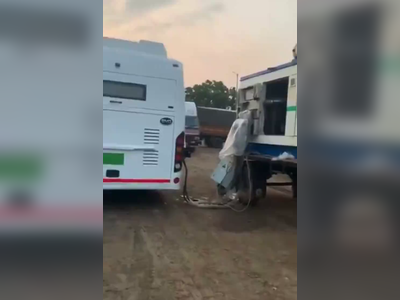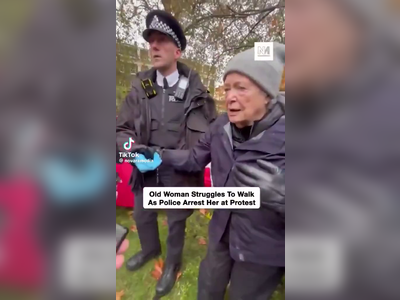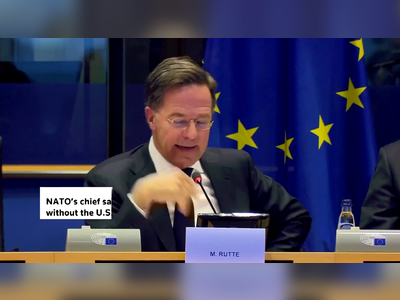Addressing the Human Toll: Europe's Struggle Against Human Trafficking
A major operation led by Germany disrupts an Iraqi criminal group, but true resolution requires more profound structural changes.
In a daring international effort, 500 German police officers recently led a crackdown on an Iraqi crime group involved in smuggling people across the treacherous Channel into the UK.
This decisive action resulted in numerous arrests and confiscations, marking a significant step in tackling this illegal trade.
But the question remains: is this merely tackling the symptoms instead of the root cause?
Human smuggling is a nefarious business deeply entrenched in desperation and geopolitical instability.
These criminal networks do more than violate laws; they endanger human lives, often with deadly consequences.
Inflatable boats meant to transport people seeking safety can quickly turn into watery graves.
This grim truth raises an important question: Should there be a greater focus on prevention rather than just punishment?
International raids undoubtedly show promise, heralding an era of strong, coordinated action within Europe.
Yet, without systemic change, these actions may only provide temporary respite.
People turn to smugglers when legal options for migration and asylum are severely limited.
If these avenues became more accessible, the demand for illegal services might naturally decrease.
These crackdowns disrupt criminal operations temporarily but fall short of addressing the underlying causes of human smuggling.
Economic instability and ongoing conflicts are powerful motivators driving thousands to seek refuge by any means necessary.
Therefore, while the arrests are praiseworthy, they highlight the need for policy frameworks that address issues like poverty, war, and persecution at their source.
European cooperation, as demonstrated in this recent operation, indicates a necessary shift in tackling transnational crime.
However, this often feels like a game of whack-a-mole.
As one route is closed, another opens, potentially pushing smugglers to take more dangerous measures to evade capture.
This unintended consequence could exacerbate the very dangers that such collaborations aim to decrease.
Thus, while this coordinated effort represents significant progress, it is merely a prelude to deeper changes needed worldwide.
As Martin Luther King Jr. wisely said, "Injustice anywhere is a threat to justice everywhere." True justice requires not only dismantling criminal networks but also creating sustainable solutions that support those whose choices are driven by dire circumstances.
This decisive action resulted in numerous arrests and confiscations, marking a significant step in tackling this illegal trade.
But the question remains: is this merely tackling the symptoms instead of the root cause?
Human smuggling is a nefarious business deeply entrenched in desperation and geopolitical instability.
These criminal networks do more than violate laws; they endanger human lives, often with deadly consequences.
Inflatable boats meant to transport people seeking safety can quickly turn into watery graves.
This grim truth raises an important question: Should there be a greater focus on prevention rather than just punishment?
International raids undoubtedly show promise, heralding an era of strong, coordinated action within Europe.
Yet, without systemic change, these actions may only provide temporary respite.
People turn to smugglers when legal options for migration and asylum are severely limited.
If these avenues became more accessible, the demand for illegal services might naturally decrease.
These crackdowns disrupt criminal operations temporarily but fall short of addressing the underlying causes of human smuggling.
Economic instability and ongoing conflicts are powerful motivators driving thousands to seek refuge by any means necessary.
Therefore, while the arrests are praiseworthy, they highlight the need for policy frameworks that address issues like poverty, war, and persecution at their source.
European cooperation, as demonstrated in this recent operation, indicates a necessary shift in tackling transnational crime.
However, this often feels like a game of whack-a-mole.
As one route is closed, another opens, potentially pushing smugglers to take more dangerous measures to evade capture.
This unintended consequence could exacerbate the very dangers that such collaborations aim to decrease.
Thus, while this coordinated effort represents significant progress, it is merely a prelude to deeper changes needed worldwide.
As Martin Luther King Jr. wisely said, "Injustice anywhere is a threat to justice everywhere." True justice requires not only dismantling criminal networks but also creating sustainable solutions that support those whose choices are driven by dire circumstances.
AI Disclaimer: An advanced artificial intelligence (AI) system generated the content of this page on its own. This innovative technology conducts extensive research from a variety of reliable sources, performs rigorous fact-checking and verification, cleans up and balances biased or manipulated content, and presents a minimal factual summary that is just enough yet essential for you to function as an informed and educated citizen. Please keep in mind, however, that this system is an evolving technology, and as a result, the article may contain accidental inaccuracies or errors. We urge you to help us improve our site by reporting any inaccuracies you find using the "Contact Us" link at the bottom of this page. Your helpful feedback helps us improve our system and deliver more precise content. When you find an article of interest here, please look for the full and extensive coverage of this topic in traditional news sources, as they are written by professional journalists that we try to support, not replace. We appreciate your understanding and assistance.











